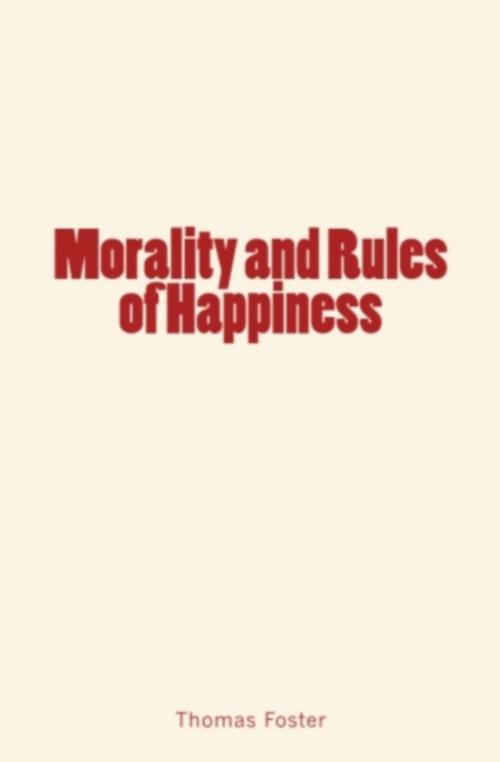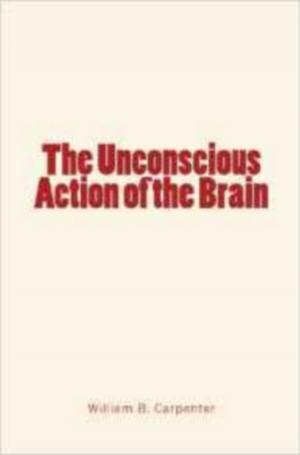| Author: | Thomas Foster | ISBN: | 9782366593075 |
| Publisher: | Editions Le Mono | Publication: | October 19, 2016 |
| Imprint: | Editions Le Mono | Language: | English |
| Author: | Thomas Foster |
| ISBN: | 9782366593075 |
| Publisher: | Editions Le Mono |
| Publication: | October 19, 2016 |
| Imprint: | Editions Le Mono |
| Language: | English |
"A man’s power of increasing happiness depends both directly and indirectly on his fitness for the occupations of his life."
The object of these papers is to show what sort of moral law is likely to arise, and what law appears to have arisen and to be in progress of formation, when the guide of conduct is the increase of happiness — individual happiness, and the happiness of those around us, with due regard to the proper apportionment of altruistic and egoistic happiness. I have not examined such questions as: What is happiness? What kind of happiness is worthiest? and so forth. I have taken, as included in the term "happiness," all the various forms of pleasurable emotion of which the human race is susceptible, while all the various forms of painful emotion to which we are exposed have come naturally into consideration as all involving greater or less diminution of happiness. With the development of the human race, or of any part of the human race, in one direction or in another (for development is multiform), we find that ideas about pleasure and pain become modified in various ways. And it is a special part of our subject to consider how the lower forms of pleasure, those related first to the physical gratification of self, and next those related specially to self but otherwise of higher type, give place gradually to the higher gratifications arising from altruistic relations. But, apart from such considerations, our whole inquiry is into the development of conduct by the natural operation of those laws which influence the development of happiness.
"A man’s power of increasing happiness depends both directly and indirectly on his fitness for the occupations of his life."
The object of these papers is to show what sort of moral law is likely to arise, and what law appears to have arisen and to be in progress of formation, when the guide of conduct is the increase of happiness — individual happiness, and the happiness of those around us, with due regard to the proper apportionment of altruistic and egoistic happiness. I have not examined such questions as: What is happiness? What kind of happiness is worthiest? and so forth. I have taken, as included in the term "happiness," all the various forms of pleasurable emotion of which the human race is susceptible, while all the various forms of painful emotion to which we are exposed have come naturally into consideration as all involving greater or less diminution of happiness. With the development of the human race, or of any part of the human race, in one direction or in another (for development is multiform), we find that ideas about pleasure and pain become modified in various ways. And it is a special part of our subject to consider how the lower forms of pleasure, those related first to the physical gratification of self, and next those related specially to self but otherwise of higher type, give place gradually to the higher gratifications arising from altruistic relations. But, apart from such considerations, our whole inquiry is into the development of conduct by the natural operation of those laws which influence the development of happiness.















